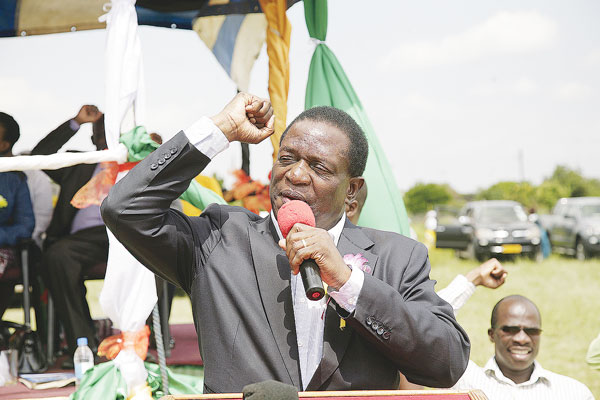
ON Monday, local clergy met with President Emmerson Mnangagwa, where various church leaders threw caution to the wind and explicitly endorsed his candidature ahead of this year’s general elections.
To say this was strange could probably be an understatement, because churches are generally believed to be sacred spaces, free from any whiff of partisan politics.
By endorsing Mnangagwa and Zanu PF, church leaders such as Zion Christian Church’s Bishop Nehemiah Mutendi and Apostolic Christian Council of Zimbabwe leader, Johannes Ndanga, were in actual fact promoting polarisation and partisan politics — thus effectively, further poisoning the political environment.
What is most unfortunate is that most of these church leaders are very influential and could consequently influence their members to throw in their lot with Zanu PF, when they should be free to back politicians and political parties of their choice.
Church leaders, by virtue of their positions, should be apolitical.
They should provide godly counsel to both the ruling party and the opposition.
It is the role of the church to speak out against excesses of the government and ensure that the powers that be are on the straight and narrow.
In fact, instead of being influenced to support any particular regime, the church must serve as a voice of reason, providing direction and guidance to the government when it oversteps the boundaries.
- Chamisa under fire over US$120K donation
- Mavhunga puts DeMbare into Chibuku quarterfinals
- Pension funds bet on Cabora Bassa oilfields
- Councils defy govt fire tender directive
Keep Reading
While some Christians are generally confused about the level of involvement they should jump into when it comes to the socio-political discourses, individual congregants should be left to make their own political choices instead of being railroaded to support their leader’s preferred candidate(s) or party.
It’s undeniable that the church should be accommodative of all despite one’s political affiliation.
The most churches can do is show up at candlelight vigils, attend political seminars and, well, talk about the state of the nation, but never publicly declare who should or should not be in power.
Church leaders should never endorse any political party or candidate, at least explicitly.
In fact, these ministers of the gospel should have encouraged Mnangagwa to seek their counsel now and again.
We need preachers, who are like the Old Testament prophets, who could confront kings when they violated God’s law.
These are the clerics that can function as the light of the world and salt of the earth, not those merely out to rubberstamp government decisions, many of which violate the scriptures.











